Coastal Explorers
SoundWaters Coastal Explorers provides field experiences for students to explore and learn about the natural world. The program helps students achieve in science by providing real science experiences that reinforce key concepts and vocabulary in biology, geology and physical science. Coastal Explorers fosters a sense of connection and respect for the environment and the student’s community, demonstrating the many ways these two worlds are linked.
All SoundWaters programs feature hands-on learning activities. The Coastal Explorers program is designed to support and enhance classroom curricula. SoundWaters Educators lead each group. The length of the program and the small size of the group ensure a close relationship among the children and SoundWaters staff.
Coastal Explorers can be customized to meet your curricular needs.
Call or email for other learning station options and scheduling: Alisha@soundwaters.org or 203 406 3312
Program Description:
IN –SCHOOL
- 1 hour per class
- Class is split into 2 groups to perform the following activities:
- Animal Adaptations: Discover the variety of animals that call the Long Island Sound watershed home. Learn how they adapt to changes daily and over time. Determine who is a producer, scavenger or predator.
- Groundwater filtration: Using a variety of materials students will experiment to determine the best recipe for groundwater filtration. Examine the filtered water to see: Which filter took out the most pollution? Which was the fastest at filtering water? Students are also asked to redesign a new filter to make the most efficient filtration system.
A draft of the day’s schedule:
In the classroom (based on a 4 class grade)
9:00 – 10:00 2 classes at a time in separate rooms
10:00 – 11:00 2 classes at a time in separate rooms
FIELD EXPERIENCE
Station descriptions:
- Coastal Habitat field experience:
An inquiry based hands-on exploration of the rocky shore, sandy beach and salt marsh. Emphasizing the fact that diversity and different life cycles of all organisms are important for the survival and health of Long Island Sound. Using transects students will conduct a population study of crab species, get up close and personal with the salt marsh and see why they rank among the most productive ecosystems on earth, discover and observe adaptations of local species at the sandy beach. - Canoeing:
At this station, students sample and examine water quality, specifically, how nutrient pollution (from sewage and septic systems) affects oxygen in surface waters such as Holly Pond and Long Island Sound. They also explore by measuring salinity, how fresh water from rivers mixes with the sea water of the Atlantic Ocean to create the brackish water of Long Island Sound and its tributary estuaries. Students will use hydrometers, secchi disks, refractometers, LaMotte samplers and more to conduct the water quality experiment. - Watershed Discovery:
Perform a hands-on experiment of human impact on a watershed. Students will be provided with “polluted” groundwater samples and tasked with creating a filter. The filter will utilize a wide variety of substances and materials. Examine the filtered water from your filter as well as the other team’s filter. Which filter took out the most pollution? Did either filter take out both types of pollution? Which was the fastest at filtering water? Samples will be tested for pH and nitrate/nitrite. - Water Quality Testing & Analysis:
Students will perform water quality sampling & testing experiments to determine the health of the water as it flows through the watershed and makes its way to Long Island Sound. Students will conduct experiments first hand to test soil and water samples for pH, salinity, nitrogen and moisture, measure dissolved oxygen, pH, temperature, turbidity and salinity in the water. Students will use the same scientific equipment that researchers use in the field every day.
Coastal Explorers objectives:
- To provide structured and creative education and introduce young people to the wonders of the Long Island Sound environment. To demonstrate how the lives of these young people children and their communities are connected to The Long Island Sound and its watershed.
- To create an innovative and unique educational experience that helps young people learn and open their minds to the excitement of learning.
- To give young people a positive, successful experience where they develop team-building skills and learn to work together in groups.

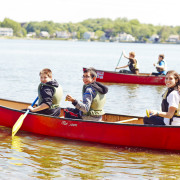
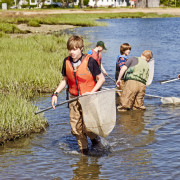
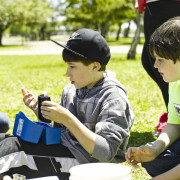
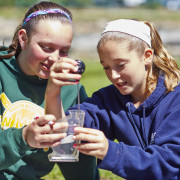
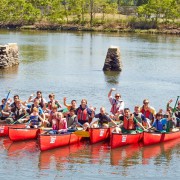
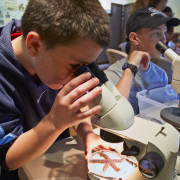

Leave a Reply
Want to join the discussion?Feel free to contribute!